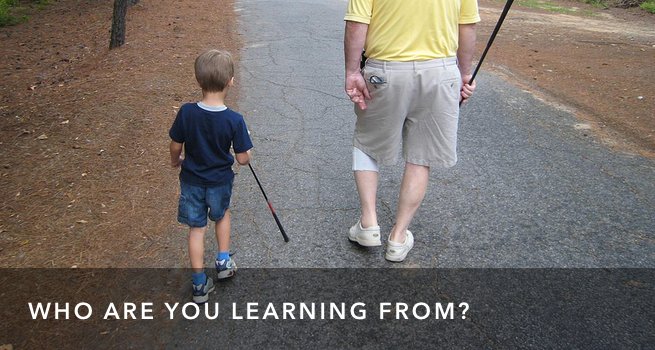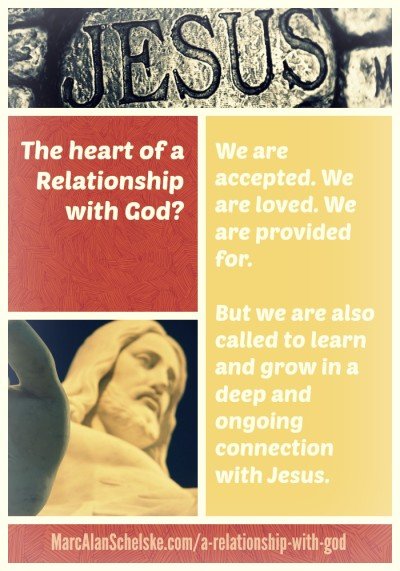6 min. to read.
I grew up in the church, and did all the church things you do when church is your natural habitat. Church school through 8th grade. Attended and later worked at Christian summer camps. Countless VBS’s, sermons, prayer meetings, and discipleship classes.
I don’t share that to brag. I learned lots of ideas about God and scriptures about God, and all the assumptions our community took as facts about God. I learned what behaviors were affirmed in our community and what behaviors were looked down on. I learned that I could get a great deal of affirmation by doing certain things the right way, but I never really gained any sense of an ongoing, vital relationship with God.
I heard that phrase repeatedly. “Relationship with God.” We talked about having one. We talked about how we could do damage to our relationship with God. We were asked the big question, by pastors and leaders: “So, how is your relationship with God going these days?”
But I knew, my friends knew. That question was code.
Sooo… How’s Your Relationship?

“Relationship with God” was a short-hand way of asking about our behavior.
What the pastor really wanted to know was whether we were reading our Bible every day. Were we living in submission to our parents and teachers? Were we misbehaving? Were we out there sinning?
The question was code for “Are you doing the right things?”
Our answer was code, too.
If we answered that we were doing pretty well in our relationship with God, what we meant was that we weren’t feeling guilty about anything lately. If we answered that we were “off track,” we meant that we were doing some things we weren’t supposed to, and were feeling guity enough to admit it.
Somehow the language of relationship came to stand in for the language of performance. Looking back it seems crazy. But when you live entirely inside a performance-oriented Christian sub-culture, it’s what you know. Amassing credit for good behavior was the name of the game.
But this way of thinking about “relationship with God” left an emptiness in me. At some point the phrase started to feel hypocritical. Jesus’ own words suggested something different.
Jesus said, “If anyone wants to come with Me, he must deny himself, take up his cross, and follow Me.” (That’s in Matthew 16:24.) If anyone wants to come with me. That’s an invitation to go along, a path where we could go with Jesus. That seems like something more than learning theology, memorizing scripture, and volunteering at church.
In another place (Matthew 11:28-30), Jesus promised that we could learn from him. He said, “Come to Me, all of you who are weary and burdened, and I will give you rest. All of you, take up My yoke and learn from Me, because I am gentle and humble in heart, and you will find rest for yourselves. For My yoke is easy and My burden is light.”
There’s another invitation to come to Him. Jesus uses the image of a yoke, the device that would link two cows or horses together so that they could work side-by-side. This is an image of doing life with Jesus, side-by-side, mutually connected together. In this connection, Jesus promises that we will learn from him.
This doesn’t sound like just learning from the words of his teachings written on a page. This sounds like learning in action, walking side-by-side with Jesus, having his gentle correction and guidance in the moment. More like the way a young calf would be guided by the older, more experienced cow he was yoked to.
Who Are You Learning To Do Life From?
Over the history of Christianity, “following Jesus” has meant many different things.
For some, it has meant reading and living by Jesus’ ethical teachings. For others, it meant accepting Jesus as Lord and Savior, trusting that Jesus’ life and death secures for you eternal life. For some, it has meant living a morally upright life.
But when we look at Jesus’ own words, it seems like the invitation to follow is something more. An invitation to learn from Him, not just from his ancient words, but from Him now through His presence. It seems to be an invitation to an ongoing, life-giving connection, where we learn how to do life from Jesus.
Another word for a relationship with learning at the center is an apprenticeship. In another post I make the case that “apprentice” is a much more accurate word to use to describe our relationship with Jesus than disciple or some of the others we use.
An apprenticeship is always heading somewhere. A blacksmith’s apprentice has the destination in mind of learning how to be a master blacksmith, by learning from the life and practice of his mentor. Paul defined the destination for followers in Ephesians 4: That we would would mature in the image of Christ. The destination of our apprenticeship is, imply put, learning to live like Jesus.
So this is the heart of what a relationship with Jesus is about. We are accepted. We are loved. We are provided for. But we are also called to learn and grow, in a deep and ongoing connection with Jesus.
I’m pursuing this path, and I invite you to it as well.
As a part of that, I’m starting a new section here on the blog, “Apprenticeship With Jesus.” In this section I’ll be writing posts that look at Jesus’ life, example and teaching, with an eye toward what we can learn and apply to our own lives. With each story or teaching, I’ll ask, “How can this element of Jesus’ life teach us? Can we learn more of how to do life with Jesus? Can we learn more of how to live in our circumstances? Can we learn more about who God is and who we are? So, watch for those posts. I hope we’ll both learn a lot.


If this concept intrigues you, I wrote a whole series going deeper. You can start here: https://marcalanschelske.com/embarrassing/
Wow, in all my years (about 30) of being a believer, I never heard the imagery of what a yoke was – something that tied two animals together so that they can work in tandem. I always assumed that it was something like a wooden device that was used to restrain or control an animal (similar to those images of portable wooden stocks that were put around slaves’ necks). After reading your interpretation of why Jesus would use the yoke imagery, it made total sense that Jesus wants to “do life” with us, side-by-side. He doesn’t want to be worshipped. He doesn’t want us to memorize the Bible. He doesn’t necessarily want us to do morning devotionals just to check off a box.
Jesus wants us to learn and grow in order to bring about the Kingdom of God on earth as in heaven. Co-workers with Jesus — what an honor that has been bestowed on us! God thinks we are worthy so who are we to think we are not?
Thanks, Marc, for sharing your rich insights. You have a clear communication style with great illustrations for getting your point across.
Hey Karen, I’m glad you’re finding something useful here. Thanks for reading and commenting. I hope to hear more from you in the future.